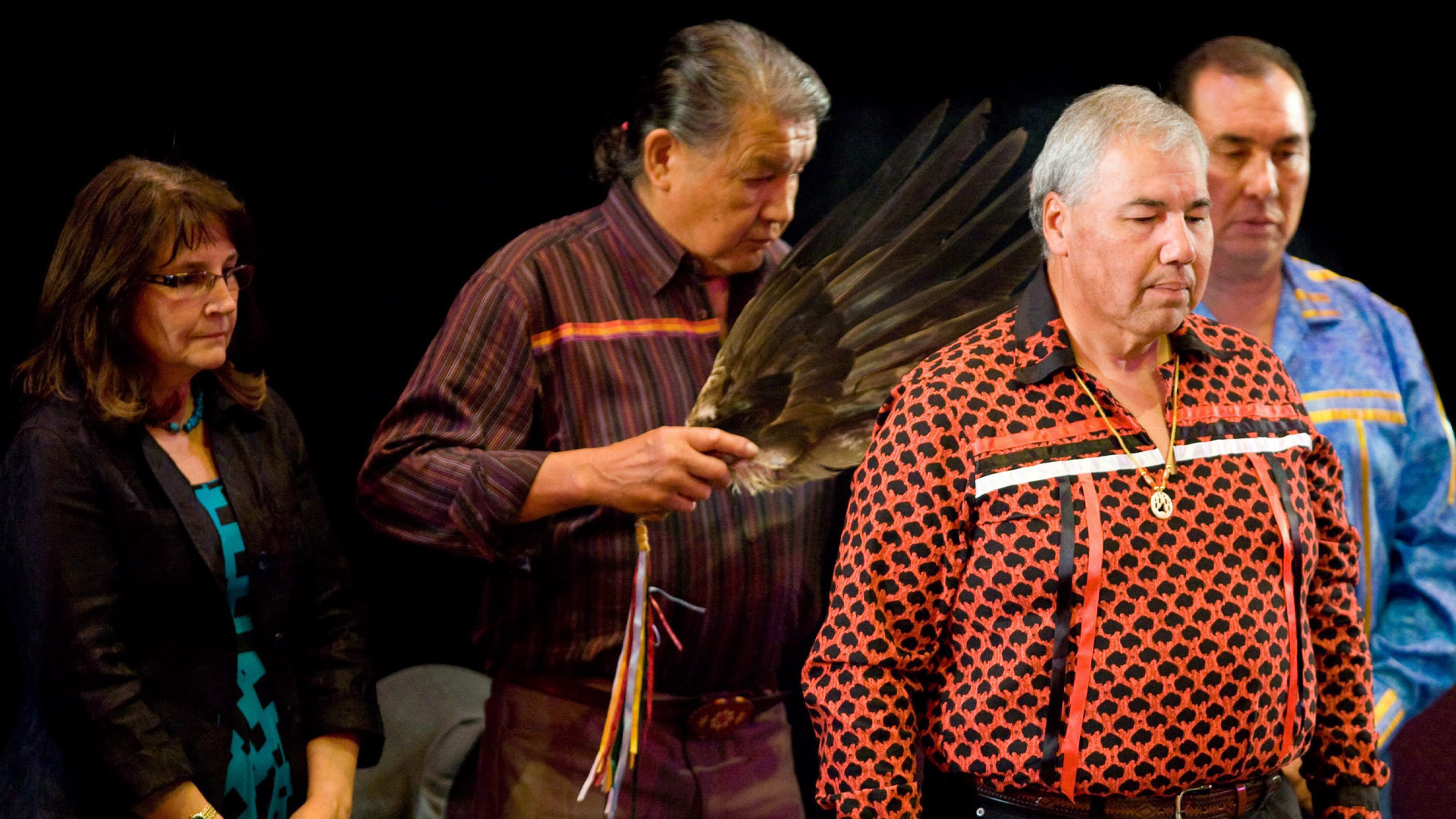
This article has been translated into French.
The intersection between mental illness and criminal justice has a long history. In the past, asylums and institutionalized care focused on keeping patients away from society. They were concerned with containment and caretaking instead of recovery. Despite advances in care, and increased awareness and understanding, stigma and discrimination about mental illness still runs deep.
Today, there’s growing concern about the number of people with mental illness and addiction in our corrections system, and an increasing number of daily police calls for people in emotional distress. Incarceration is seen as the new asylum. Unless we take a sharp turn in public policy, we will limit Canada’s social and economic prosperity and further deny the rights of vulnerable citizens.
What’s needed?
First, Canada must increase spending on mental health, funding it at a level that’s proportionate to its societal burden and better aligning the health-care system so that people can easily access timely mental health care whenever and wherever they need it. This must also include social assistance and housing that is safe and affordable so that people with serious mental illnesses are not living below the poverty line.
We must look for alternatives to incarceration whenever possible for those who commit crimes. Diversion programs and mental health courts, which divert people from conviction and focus on rehabilitation, particularly for our young citizens, can change lives. Finally, we need to ensure that there’s seamless access to quality treatment and rehabilitation in our correctional system.
Mental disorders account for at least 13 percent of the world’s burden of disease, yet Canada only spends 7 percent of its health-care dollars on mental health, less than many other countries. Treating mental health differently from physical health has led to a fragmented system and dire access to care and supports.
Social factors like housing, income and education are significant determinants of good health and are also inextricably linked to whether people come in contact with police or end up being jailed.
To really make a difference, we must reverse the gross underfunding of the sector, and we need to break down the silos in and out of the health-care system. In Canada, more than 520,000 people with mental illness are inadequately housed, including 120,000 who are homeless. While most people with mental illness want to work, up to 90 per cent of Canadians with serious mental illness are unemployed due to discrimination, inadequate job supports and problems with our income security system. Social factors like housing, income and education are significant determinants of good health and are also inextricably linked to whether people come in contact with police or end up being jailed. Prevention requires building civilized societies where citizens can adequately access basic services.
Many countries around the world have used diversion programs and shown them to be effective. Mental health courts, where mental health professionals are on hand to support those who have come into contact with the justice system, provide alternatives to incarceration and divert people into the very health care that they should have had to begin with. Drug treatment courts, like the one supported by the Centre for Addiction and Mental Health (CAMH), connect vulnerable people – many of whom committed non-violent crimes to support their addictions – to treatments and supports that they desperately need.
The fact that most psychoactive substances are illegal makes almost every addiction issue a criminal one. This sentences vulnerable populations and young people, to a great degree, to a life in and out of jail.
There are countless success stories from these courts. And yet when we think about addiction, in particular, and the stigma attached to substance use – seeing it as a choice rather than an illness, as a crime rather than a response to a health-care need, as a moral imperative rather than a care imperative – we have a long way to go. The fact that most psychoactive substances are illegal makes almost every addiction issue a criminal one. This sentences vulnerable populations and young people, to a great degree, to a life in and out of jail.
The overrepresentation of people with mental illness in our jails is a national tragedy. Data from Correctional Service Canada has revealed that 50 per cent of female inmates in federal prisons, and 26 per cent of males, have a mental health need. The suicide rate is seven times the national average, and 44 per cent of inmates who took their own lives had at least one psychological disorder.
Despite progress thanks to strong advocacy from human rights organizations, we have a way to go to ensure that our jails include appropriate health supports. Here in Toronto, a CAMH Forensic Early Intervention Service at the Toronto South Detention Centre identifies the mental health needs of people entering the jail or on remand so that they can be provided with treatment and supports. This approach is showing some promise, and also providing us with evidence of what we already knew – that people are falling through the cracks of our health-care system and ending up in our jails instead.
We’re proposing a different approach. What if we thought about mental illness as a health issue, not a criminal issue? What if we built a system of care and supports that was focused on recovery and allowed people to live their best lives? What if we implemented a public health approach to substance use? What if we responded with paramedics instead of police to distress calls? What if we diverted young people from courts and surrounded them with supports so that they could rehabilitate, finish their education and find meaningful work?
We have an opportunity for leadership at the national and provincial levels of government to work together on an integrated system approach to mental health, one that would significantly reverse the trajectory of people’s lives. But we need to act now.
This article is part of the Widening the Lens on Criminal Justice Reform special feature.
Photo: Shutterstock/By Inked Pixels.
Do you have something to say about the article you just read? Be part of the Policy Options discussion, and send in your own submission. Here is a link on how to do it. | Souhaitez-vous réagir à cet article ? Joignez-vous aux débats d’Options politiques et soumettez-nous votre texte en suivant ces directives.








